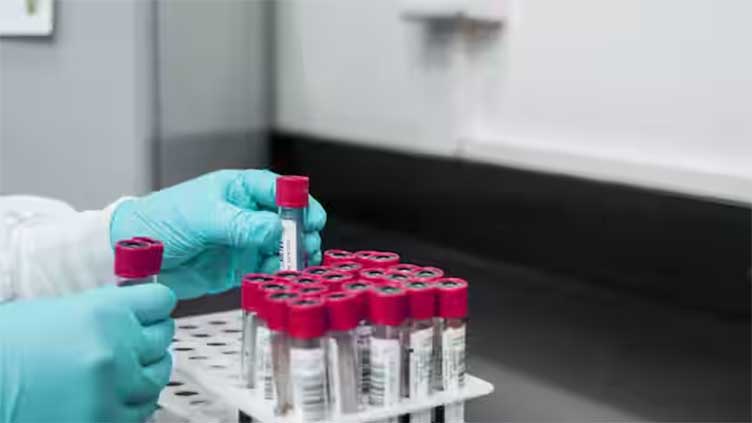This blood test can detect deadly brain cancer in one hour. Here's how

A team of scientists from the United States and Australia made the breakthrough
(Web Desk) - A new breakthrough blood test has been invented by scientists for detecting brain cancer. This test churns faster results and is less invasive in comparison to a surgical biopsy.
More than 100 microlitres of blood are required to carry out this novel 'liquid biopsy' and in an hour the method is able to detect biomarkers related to glioblastoma, which is the deadliest brain tumour.
The accuracy of this test is best in comparison to all other existent markers and tests for glioblastoma. According to the prototype's developers, the test has "near turn-key functionality".
A team of scientists from the United States and Australia made the breakthrough and the University of Notre Dame's scientists led the entire team.
The test has been based on sensing mutated blood biomarkers which are known as epidermal growth factor receptors (EGFRs) and are overexpressed in a few kinds of cancers, like glioblastoma.
The scientists found these blood biomarkers present inside extracellular vesicles which are small packages filled with proteins, lipids, and genetic material which belong to their original cells.
"Extracellular vesicles or exosomes are unique nanoparticles secreted by cells," said biomolecular engineer Hsueh-Chia Chang from Notre Dame.
"They are big – 10 to 50 times bigger than a molecule – and they have a weak charge. Our technology was specifically designed for these nanoparticles, using their features to our advantage," he added.
A supersensitive biochip was covered with an untreated sample of blood plasma by the researchers to detect the molecules which were released by cancerous tumour cells.
This chip has a tiny sensor which contains antibodies that get attracted to the exosomes carrying mutated EGFRs.
Once these EGFRs get attached to the biochip, a voltage change happens in the plasma solution which if leads to the creation of a high negative charge, indicates the presence of cancer.
In the experiments done, the clinical blood samples were taken from 10 healthy individuals and 20 patients suffering from glioblastoma and the biochip was tested using them.
For every test, one chip was used. The liquid biopsy was finally able to detect the cancer biomarkers with accuracy and also reflected a very low prognostic value, which hinted that the test is highly replicable.
"Our electrokinetic sensor allows us to do things other diagnostics cannot," said biomolecular engineer Satyajyoti Senapati from Notre Dame.
"We can directly load blood without any pretreatment to isolate the extracellular vesicles because our sensor is not affected by other particles or molecules. It shows low noise and makes ours more sensitive for disease detection than other technologies," he added.
According to the experts, the biochip was able to accurately detect and quantify exosome concentrations when they were as low as 0.01 per cent.


